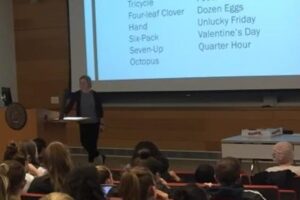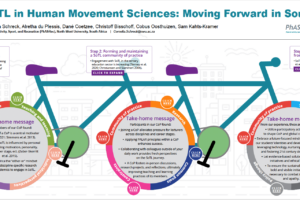Slow SoTL: A Kind of Manifesto*
- Posted by ISSOTL Admin
- Categories Blog
- Date August 23, 2017
- Comments 0 comment
The Slow Movement—originating in Slow Food—challenges the frantic pace, efficiencies, and standardization of contemporary culture. Inspired by this careful attention to a daily task, we think the time is ripe for a Slow SoTL movement.
We believe that integrating the principles of Slow into our professional work will foreground the meaning, joy, and warmth of our teaching, will honor the humanity of our students and ourselves as learners (Palmer, Zajonc, & Scribner, 2010), and will resist the isolation, cynicism, and homogenization of the academy. Indeed, if there is one sector of society which should be cultivating deep thought, modeling communities of care, “widening the horizons of empathy” (Kramer, 2017, p. 6), and integrating a fragmented profession (Boyer, 1990), it is SoTL practitioners.
Slow SoTLers would advocate deliberation over acceleration, complexity over simplicity, understanding over proof (Poole, 2013). We need time to think, to be fully present, to listen carefully, and to put the classroom “in slow motion” (Berg & Seeber, 2016, p. 40)—and so do our students and colleagues. We believe that time for open-ended inquiry, critical reflection on our practices (Brookfield, 1995), and seeing “what we find when we’re not looking” (Berg & Seeber, p. 67) is not a luxury but is essential. We are optimistic, believing that messiness, confusion, and failure go hand-in-hand with learning (ours, our students’, and our colleagues’), and that campuses can be “’as-if’ places” (Walker, 2009, p. 221) that incubate social change if we live and work in ways that resonate with our aspirations for teaching, learning, and society.
We envisage Slow SoTLers teaching purposefully, learning with colleagues and students, modeling scholarship as community, and living narratives of growth (O’Meara, Terosky, and Neumann, 2008). Yet we recognize that the academy is far from perfect. Working conditions, teaching expectations, reward structures, and many other factors make Slow difficult for many who might wish to do Slow SoTL.
To make space for the diversity of people who might engaged in Slow SoTL, we intentionally are not defining its fundamental characteristics here. Instead of a manifesto, we are offering a “kind of” manifesto – an invitation to join us in thinking and acting together in ways that give Slow SoTL shape and purpose, that enact Slow and SoTL values in meaningful communities, and that allow for the diversity of practices and experiences in the global academy.
Please join us in our big, slow tent by helping us articulate some principles of Slow SoTL on this Google doc, and join us for Thursday breakfast at ISSOTL17 in Calgary.
* We are inspired in both content and form by “The Slow Professor Manifesto” from the preface of The Slow Professor: Challenging the Culture of Speed in the Academy (2016) by Maggie Berg and Barbara K. Seeber. Our title also echoes an influential document from the US feminist and civil rights movements, “Sex and Caste: A Kind of Memo” by Casey Hayden and Mary King (1965).
References
- Berg, Maggie, & Seeber, Barbara K. (2016). The Slow Professor: Challenging the Culture of Speed in the Academy. Toronto: U of Toronto Press.
- Boyer, Ernest L. (1990). Scholarship Reconsidered: Priorities of the Professoriate. San Francisco: Jossey-Bass.
- Brookfield, Stephen. (1995). Becoming a Critically Reflective Teacher. San Francisco: Jossey-Bass.
- Hayden, Casey, & King, Mary. (1965). Sex and caste: a kind of memo. Liberation. 35-36.
- Kramer, Paul A. (2017, 19 Feb). History in a time of crisis. The Chronicle of Higher Education.
- O’Meara, KerryAnn, Aimee LaPointe, Terosky, & Neumann, Anna. (2008). Faculty Careers and Work Lives: A Professional Growth Perspective. San Francisco: Jossey-Bass.
- Palmer, Parker J., Zajonc, Arthur, & Scribner, Megan. (2010). The Heart of Higher Education: A Call to Renewal. San Francisco: Jossey-Bass.
- Poole, Gary. (2013). Square one: What is research? In K. McKinney (Ed.), The Scholarship of Teaching and Learning In and Across the Disciplines. Bloomington, IN: Indiana University Press. 135-151.
- Walker, Melanie. (2009). Pedagogy for rich human being-ness in global times. In E. Unterhalter & V. Carpentier (Eds.), Global Inequalities and Higher Education. New York: Palgrave Macmillan. 219-240.




